I'm a OCaml newbie working with some pretty complex (at least for me) OCaml code I didn't write. It would help a lot to understand it if I could see the inferred types for some of the values, as I can do with F# and Visual Studio by hovering over any value, e.g.:

(screenshot borrowed from http://theburningmonk.com/2010/01/learning-f-part-1/)
I guess I could break down the code and feed it to the toplevel to get the types, but is there any other, simpler way?
